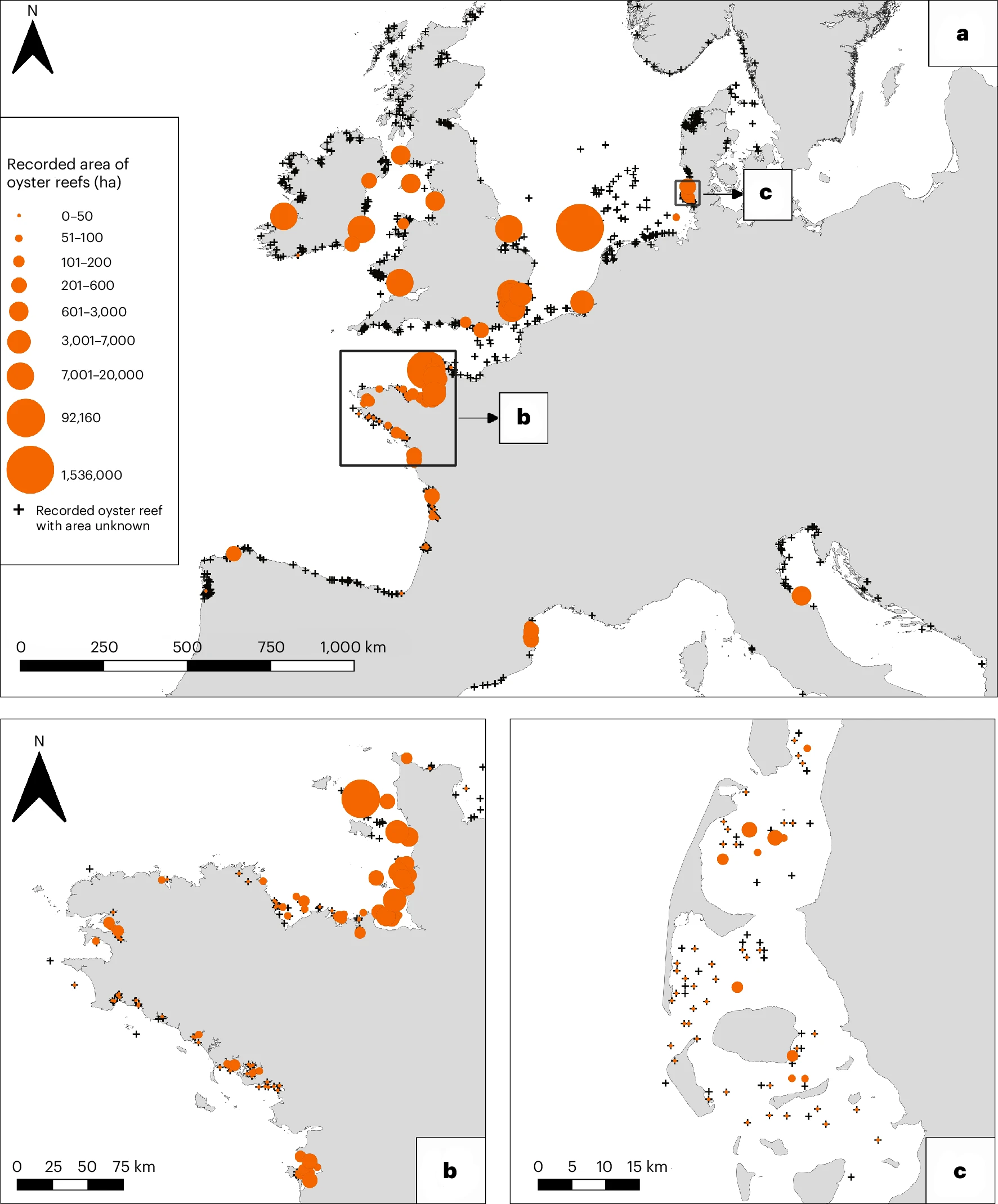
A groundbreaking study published in Nature Sustainability has unveiled the extensive historical presence of European oyster reefs, highlighting their significant ecological role and the profound impact of their decline. By analyzing over 1,600 records spanning 350 years, researchers mapped the historical distribution of European flat oyster (Ostrea edulis) reefs across a 10 km² resolution.
The findings reveal that these reefs once covered more than 1.7 million hectares along the coasts of France, Denmark, Ireland, and the United Kingdom, serving as vital three-dimensional habitats that supported diverse marine life.
The study underscores how the loss of these complex structures has led to a ‘flattening’ of coastal ecosystems, emphasizing the need for informed restoration efforts to revive these crucial marine habitats.
Read the article HERE


Related Articles
Oceans Past XI: deadline for Abstracts & ECR Funding Award has been EXTENDED!
Deadline for Abstracts & ECR Funding Award submissions for the OPI XI Conference has been EXTENDED!New closing date: January 15th 2026 The Oceans Past Initiative connects scholars and practitioners interested in documenting and understanding changes in marine...
2026 OPI Membership Is Now Live
Thank you for your continued support of OPI. We would like to remind you to renew your 2026 membership, which expires on 31 December each year. Why become an OPI member? OPI membership gives you access to: Discounted registration for OPI conferences Our quarterly...
New Study Reveals Earliest Evidence of Whale Bone Working in Late Paleolithic Europe
New Study Reveals Earliest Evidence of Whale Bone Working in Late Paleolithic Europe A new paper published in Nature Communications presents groundbreaking evidence of whale bone working in the Bay of Biscay during the Late Paleolithic. Through a detailed multiproxy...
Continuous mitochondrial diversity of Danube sturgeon species over millennia
New Study Reveals Continuous mitochondrial diversity of Danube sturgeon species over millenniaSturgeons, iconic, culturally significant, and ecologically vital fishes, have long shaped human economies and ecosystems in the Danube basin. Yet today, these species are in...




